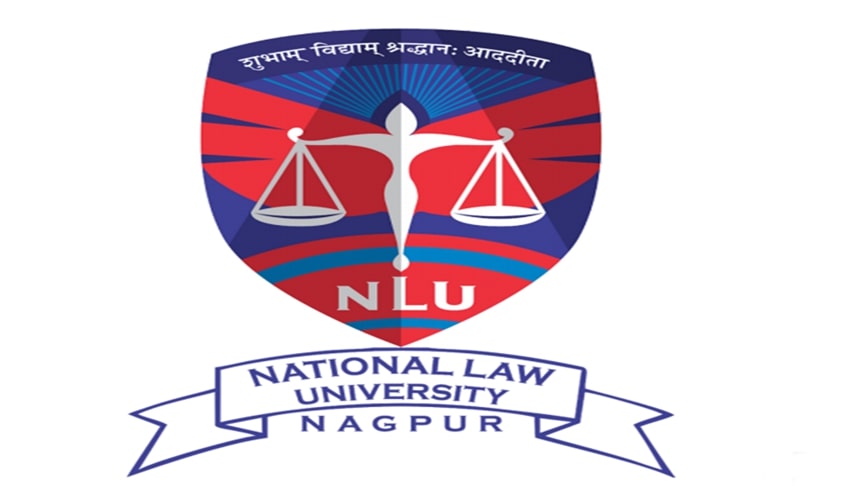Since its inception in 2016, Maharashtra National Law University, Nagpur has made multifarious achievements, providing a strong platform for activities that encourage excellence in the spheres of academics, co-curricular and extra-curricular activities. The University is presently offering B.A.LL.B.(Hons.) Five-Year Integrated Degree Course, B.A.LL.B.(Hons. in Adjudication and Justicing) Five-Year Integrated Degree Course, LL.M. One-Year Postgraduate Degree Course, Ph.D. having interface with law and all legal issues, besides Diploma and Certificate Courses.
ABOUT THE WEBINAR
MNLU, Nagpur and Maharashtra State Biodiversity Board are jointly organizing International Webinar on Implementation of Access and Benefit Sharing: Sustaining Indian Biodiversity in virtual mode on November 12-13, 2021 (Friday and Saturday). There is a need to implement access and benefit sharing mechanism under UN Convention on Biodiversity 1992 and its supplementary Nagoya Protocol 2010 to attain distributive justice in
the context of biodiversity.
The Webinar is organized to meet the following objectives:
- To develop the jurisprudence of ABS mechanism in India by critically examining existing knowledge on biodiversity and its conservation;
- To identify gaps in legal and institutional framework on ABS mechanism in India; and
- To discuss new and emerging issues in this area like bio-piracy, conflict with IPR, reluctance of Indian corporations and research institutions, etc.
Human Rights and Biodiversity
Biodiversity loss may disproportionately harm the human rights of indigenous people, local communities, women and girls, children and youth, the poor, and persons, groups and people’s in vulnerable situations. Deliberation on this causal relationship is expected in this section.
Distributive Bio-justice and Sustainable Development
Since ABS talks about providing access to corporations and research institutions to bio resources that belong to the State and indigenous/local/tribal people residing there, it is a duty on corporations and these research bodies to share the benefits earned by them on commercial utilization of these bio-resources with the State as well as other relevant stakeholders. The distribution of benefits with all relevant stakeholders will assure distributive justice and since it is being done in the area of biodiversity, it’s distribution is distributive bio-justice. This will also help us in achieving all-inclusive sustainable development which is accepted as part of environmental jurisprudence in India.
Identification and Education of Stakeholders
ABS aims inclusivity but whose inclusion and exclusion, is still a grey area. We need to precisely define all the stakeholders other than State. Section 2(a) of the Biodiversity Act 2002 defines benefit claimers as “the conservers of biological resources, their by-products, creators and holders of knowledge and information relating to the use of such biological resources, innovations and practices associated with such use and application.” This definition lacks clarity and hence it can be easily abused. Once the stakeholders are identified, they need to be educated about their rights as benefit claimers under benefit sharing agreements signed by
biodiversity boards across India and users of bio-resources. At present, lack of awareness among these vulnerable populations of our country is one of the major hindrances in effectively implementing ABS in India and fixing accountability among the users and the boards.
Valuation of Biodiversity
UN Convention on Biodiversity 1992, in its Preamble, recognizes the intrinsic value of biological diversity and of the ecological, genetic, social, economic, scientific, educational, cultural, recreational and aesthetic values of biological diversity and its components. Determination of value of biodiversity is the first step and hence sine qua non for effective and equitable benefit sharing with stakeholders.
RELEVANT DATES
Deadline for Submission of Abstract : October 02, 2021
Confirmation of Abstract Selection : October 05, 2021
Deadline for Submission of Full Paper : November 05, 2021
Last Date for Registration : November 05, 2021
Webinar Date : November 12-13, 2021
REGISTRATION DETAILS
REGISTRATION FEE
For Presenting a Paper Students: Rs. 200/-
Faculties/Research Scholars/Professionals/Others: Rs. 500/-
Mode of Payment:
The participants can pay the registration fee by using the below link
RELEVANT LINKS
 354
354

